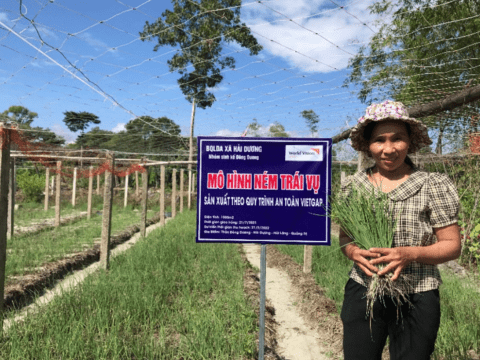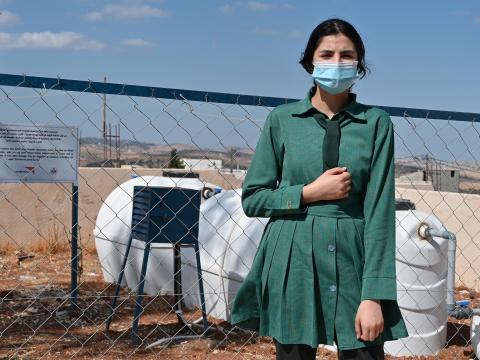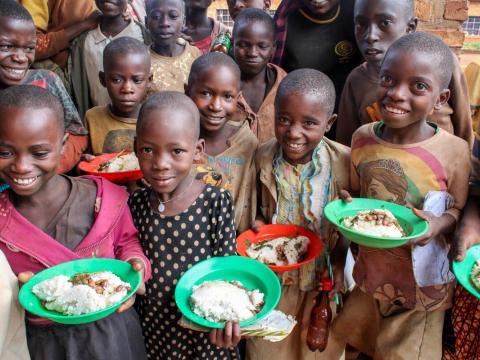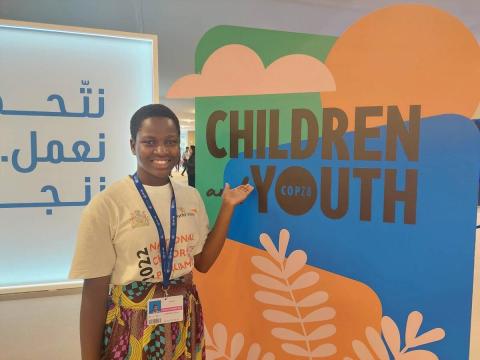
Weather insurance plus farming techniques make farmers more resilient to the climate crisis
Climate resilience expert Ngo Tho Hung explains an innovative approach to helping Vietnamese farming families cope when crops fail.
11 June, 2024
Poverty is complicated. There can be many reasons why someone loses their income or the ability to afford the essentials of life. The situation for farmers in Vietnam’s Hai Lang District is a prime example. Ninety-five percent of households in Hai Lang depend solely on agricultural cultivation. Yet, in 2022 food grain production dropped by fifteen percent on the previous year.
The reason? A combination of an increase in the frequency and intensity of tropical cyclones; a lack of knowledge about diversified farming practices; and the economic shock caused by ruined crops.
An innovative pilot
Staff at World Vision in Viet Nam decided to boost both agricultural as well as financial resilience by providing regular information about weather patterns; teaching communities about automated weather-index based agricultural insurance that compensates farmers for crop losses; helping them to buy this insurance for two years; improving their financial literacy; and providing training on climate-smart agricultural training techniques.
Aimed at some of the most vulnerable people in the district, this was a team effort. Local women’s unions, insurance companies and government departments all worked with World Vision’s Viet Nam office to get this project off the ground. World Vision has the benefit of not just being a relief, development and advocacy organisation, but also having a micro-finance sister organisation that can provide loans to support this kind of venture.
A sustainable Intervention
As with any such programme, the aim is always to ensure the community is eventually self-sufficient, which is why the latter stages of this project will include asking beneficiaries of this approach to contribute a percentage of their crop to a group of producers. This will help to strengthen food security in communities after the official programme ends.
Ms. Doan Thi Thu Suong, leader of producer group in Hai Duong commune, also sees the multiple benefits this solution can bring to her community. Her commune has strengths in cultivating scallion (onion) and rice, crops that bring good income to the people. But in recent years, extreme weather events are increasingly challenging; unseasonal rains and floods, hot heat and drought become more persistent. The financial risks to agricultural cultivation are enormous.
“We feel more secure if farmers' fields are insured because, when natural disasters occur, we will receive certain support. Our children in the community are also better taken care of if the family’s financial condition is more stable," she explains.
This fresh approach to tackling a multiplicity of threats to the well-being of children and their communities recently received an award that World Vision gives to its best innovation annually, but only time will tell how successful these interventions will in building up local people’s resilience to extreme weather events and crop failures.
Staff in Viet Nam are, however, confident that this approach will reap a good return for our community partners. The hope is that it will eventually be rolled out across the rest of Vietnam as well as other countries where communities face similar challenges.
Ngo Tho Hung, is the climate resilience lead at World Vision Vietnam, He has more than 20 years’ experience in Environment and Development, Climate Change Resilience, Low Carbon Development, Climate Smart Agriculture, Natural Resources Management, and Innovation Accelerator for Green Initiatives.


